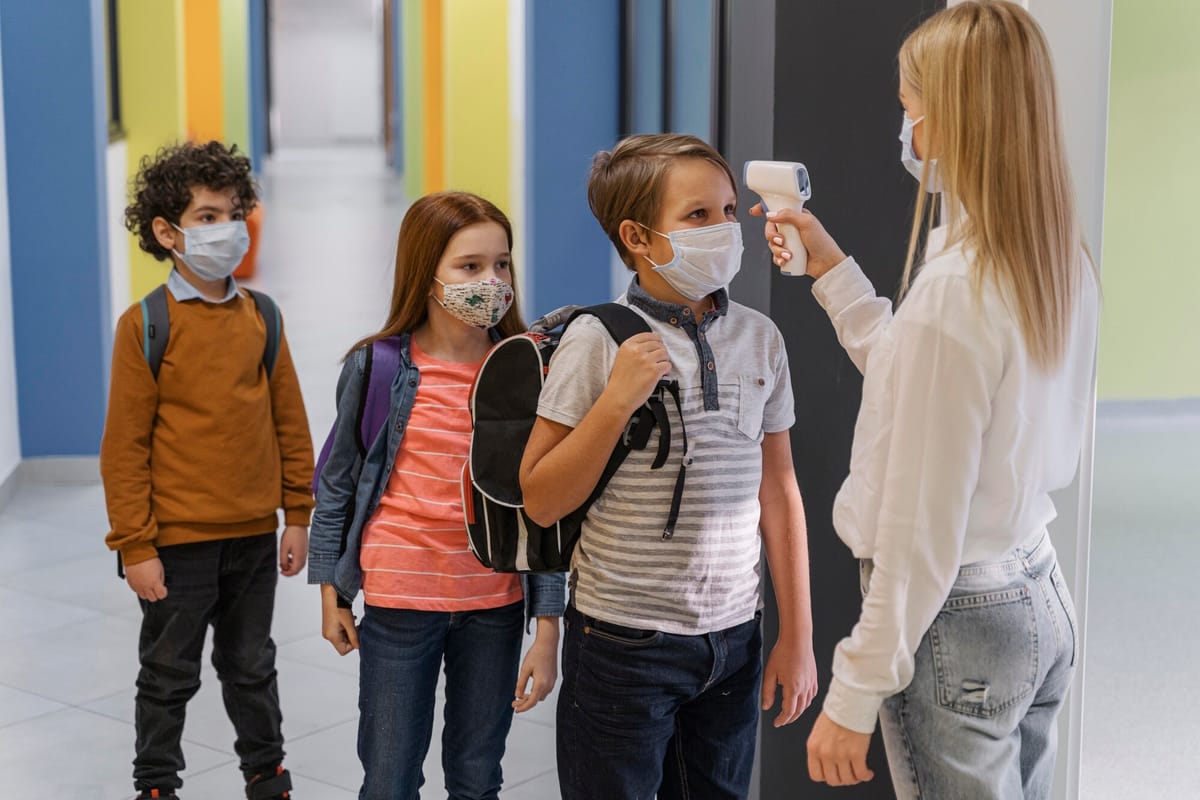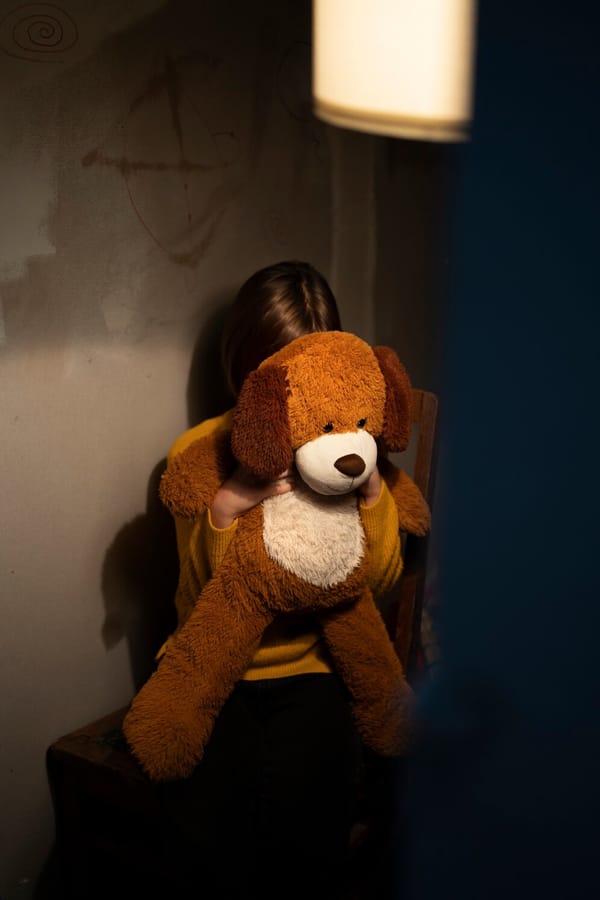Daycare During Illness: What Parents Should Know

As a parent, managing daycare during illness can be one of the most stressful and emotionally charged situations. On one hand, you want to ensure that your child is well enough to attend daycare and socialize with their friends, but on the other hand, you also need to consider the health and safety of others, as well as your child’s well-being. It can feel like a delicate balancing act when your child gets sick and you have to decide whether or not to send them to daycare.
Knowing how to navigate daycare during illness is essential for both your child and the other children in care. Here’s a guide on what parents should know when it comes to daycare during illness.
1. Know the Daycare's Illness Policy
Every daycare facility will have its own policies regarding illness, and understanding these policies can help you make informed decisions. Most daycare centers will ask that children stay home if they have certain symptoms, such as fever, vomiting, diarrhea, or contagious illnesses like colds or flu. Policies are usually in place to ensure the safety and health of all the children in care.
Why it matters: Following the daycare's illness policy helps reduce the spread of contagious illnesses and ensures that your child is not exposed to potentially worse environments if they are not feeling well.
Tip: Familiarize yourself with the daycare's specific illness policies, including any guidelines on when it's okay to return to daycare after being sick. Many daycares require a child to be symptom-free for 24-48 hours before returning.
2. Monitor Symptoms and Assess Your Child’s Health
Before sending your child to daycare, assess their symptoms to see if they’re well enough to participate in activities. If your child is experiencing mild symptoms like a stuffy nose or slight cough, they may still be able to attend daycare, but if they have a fever, body aches, or are lethargic, it may be best to keep them home and allow them time to rest and recover.
Why it matters: Sending a sick child to daycare not only risks exposing others to illness but can also delay your child’s recovery, especially if they’re not feeling up to normal activities.
Tip: Trust your instincts as a parent. If you’re unsure, it’s often better to err on the side of caution and keep your child home until they’re feeling better.
3. Contagious Illnesses: When to Keep Your Child Home
Some illnesses are more contagious than others and can easily spread in a daycare environment. These include illnesses like the common cold, flu, COVID-19, hand-foot-and-mouth disease, and stomach bugs. If your child has any of these, it’s important to keep them home to prevent the illness from spreading to other children and staff.
Why it matters: Contagious illnesses can spread quickly in daycare settings due to close contact, shared toys, and communal spaces. By keeping your child home, you’re not only caring for them but also being considerate of others.
Tip: Keep your child home for at least 24-48 hours after symptoms have subsided. If you're unsure whether or not your child is still contagious, consult with your pediatrician for guidance.
4. Communication with Your Daycare Provider
If your child has been sick or you’re unsure about whether they should attend daycare, always communicate openly with your daycare provider. Let them know your child’s symptoms and any concerns you may have. Daycare providers are typically well-trained in managing illness in a group setting and can provide insight into whether it’s safe for your child to return or if you should wait longer for them to recover.
Why it matters: Open communication with daycare providers ensures that both you and the staff are on the same page about your child’s health and helps the daycare make informed decisions about their attendance.
Tip: Stay proactive and provide clear information about your child’s illness, such as the specific symptoms and the length of time they've been sick.
5. Prepare for Sick Days: Have a Plan in Place
Every parent knows that sick days are inevitable. Sometimes, your child may fall ill during the day, and the daycare will need you to pick them up. Have a plan in place for sick days, including knowing who can step in if you are unavailable, whether it’s a partner, grandparent, or trusted friend. You may also want to have a backup plan for unexpected daycare closures or if your child’s illness requires longer recovery time.
Why it matters: Having a backup plan can help alleviate stress in case of an emergency and ensures that your child is cared for without disrupting your entire routine.
Tip: Keep your daycare’s contact information handy and have a list of people who can help if you’re unable to pick up your child immediately.
6. Comforting Your Child During Illness
If your child is unwell and staying home, it’s important to create a comfortable and soothing environment. Help them feel secure with extra cuddles, quiet activities, and plenty of fluids. Rest is key to recovery, and you can support their healing process by providing a calm, nurturing environment.
Why it matters: Comfort and emotional support during an illness help your child feel safe and secure, which can help them recover more quickly.
Tip: Set up a cozy resting spot with their favorite blanket or stuffed animal. Offer plenty of fluids and simple, nutritious meals to help them stay hydrated and nourished.
7. Preventing the Spread of Illness: Hygiene Practices
To reduce the spread of illness, both at home and at daycare, encourage good hygiene practices. Teach your child to wash their hands frequently, cover their mouth when coughing or sneezing, and avoid sharing items like cups or toys when they’re not feeling well. At daycare, staff should be vigilant about cleaning and disinfecting common areas to prevent germs from spreading.
Why it matters: Good hygiene practices can significantly reduce the spread of germs and help prevent others from getting sick.
Tip: Make handwashing fun! Turn it into a game to get your child excited about practicing good hygiene. Ensure they wash their hands for at least 20 seconds with soap and water, especially after coughing, sneezing, or using the bathroom.
8. Know When to Seek Medical Attention
If your child’s illness doesn’t seem to improve or if they develop more serious symptoms, it’s important to consult with a pediatrician. Symptoms like high fever, persistent coughing, difficulty breathing, or dehydration may require medical attention. It’s always better to be cautious and have a professional evaluate your child’s health if you’re concerned.
Why it matters: Prompt medical attention can help prevent complications and ensure that your child gets the appropriate treatment for their condition.
Tip: Keep a list of symptoms and when they started, and share this with your pediatrician if you need to schedule an appointment.
9. Be Prepared for the Transition Back to Daycare
When your child is ready to return to daycare after an illness, make the transition as smooth as possible. Talk to your child about returning to daycare and reassure them that it’s okay to go back to their friends and favorite activities. Depending on the illness, they may be a little more tired than usual, so ensure they’re gradually eased back into their routine.
Why it matters: A positive re-entry into daycare helps your child feel comfortable and confident, especially after being out sick for a few days.
Tip: Give your child a little extra time in the mornings to adjust to the routine after being sick. Let them rest if needed and avoid overwhelming them with too many activities on the first day back.
Conclusion
Navigating daycare during illness requires a balance of responsibility, care, and communication. While it's natural for parents to want to get their children back into the routine, it’s important to prioritize your child’s health and the well-being of others. By staying informed about your daycare's illness policies, monitoring your child’s symptoms, and following hygienic practices, you can ensure that your child stays safe while recovering and help prevent the spread of illness in the daycare community.




